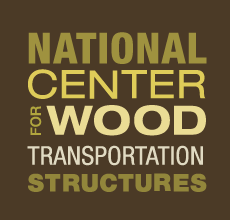Project Details
05/01/15
07/31/17
Federal Highway Administration State Planning and Research Funding
Iowa Department of Transportation
Iowa Highway Research Board
Midwest Transportation Center
USDOT/OST-R
Researchers
About the research
In recent years, the Iowa Department of Transportation (DOT) as well as several other state DOTs have made increasing use of drilled shaft foundations on bridge projects. Due to soil variability and the lack of redundancy, the Iowa DOT typically requires that a bi-directional Osterberg cell (O-cell) load test be performed on a demonstration shaft at each new bridge project. The load test results are then used to verify the predicted capacity, and often to adjust the values of geotechnical shaft resistances used in designing the shafts for the entire bridge. However, O-cell tests are very costly (around $100k per test), and often provide inconclusive results, as only the upper or lower portion of the shaft (or neither) actually reach failure. As a result, extrapolation is commonly necessary to estimate the expected load-displacement behavior of the bridge foundations under the actual top-down loading conditions.
To address these shortcomings, this research investigates the use of top-down load tests on reduced-scale drilled shafts and develops scaling relations to predict the load-displacement curves of the full-scale shafts. Test results from the reduced-scale shafts will be compared to those from a planned full-scale O-cell test at an Iowa DOT bridge project site.
The research will contribute to the Midwest Transportation Center (MTC) theme of Data Driven Performance Measures for Enhanced Infrastructure Condition, Safety, and Project Delivery. Specifically, the project will contribute load-test data for the DSHAFT load and resistance factor design (LRFD) calibration database for drilled shafts, while enhancing the safety of the infrastructure system through more accurate and reliable design methods for drilled shaft foundations. The final products of this research will include design guides and tech-transfer materials for immediate use of the technology by the practicing engineers.
Funding Sources:
Federal Highway Administration State Planning and Research Funding
Iowa Department of Transportation
Iowa Highway Research Board ($100,000.00)
Midwest Transportation Center
USDOT/OST-R ($100,000.00)
Total: $200,000.00
Contract Number: DTRT13-G-UTC37
